LG, Samsung and others are rolling out their 2024 OLED TVs – here are 5 things you need to know about them
Brighter and faster but there’s a panel lottery
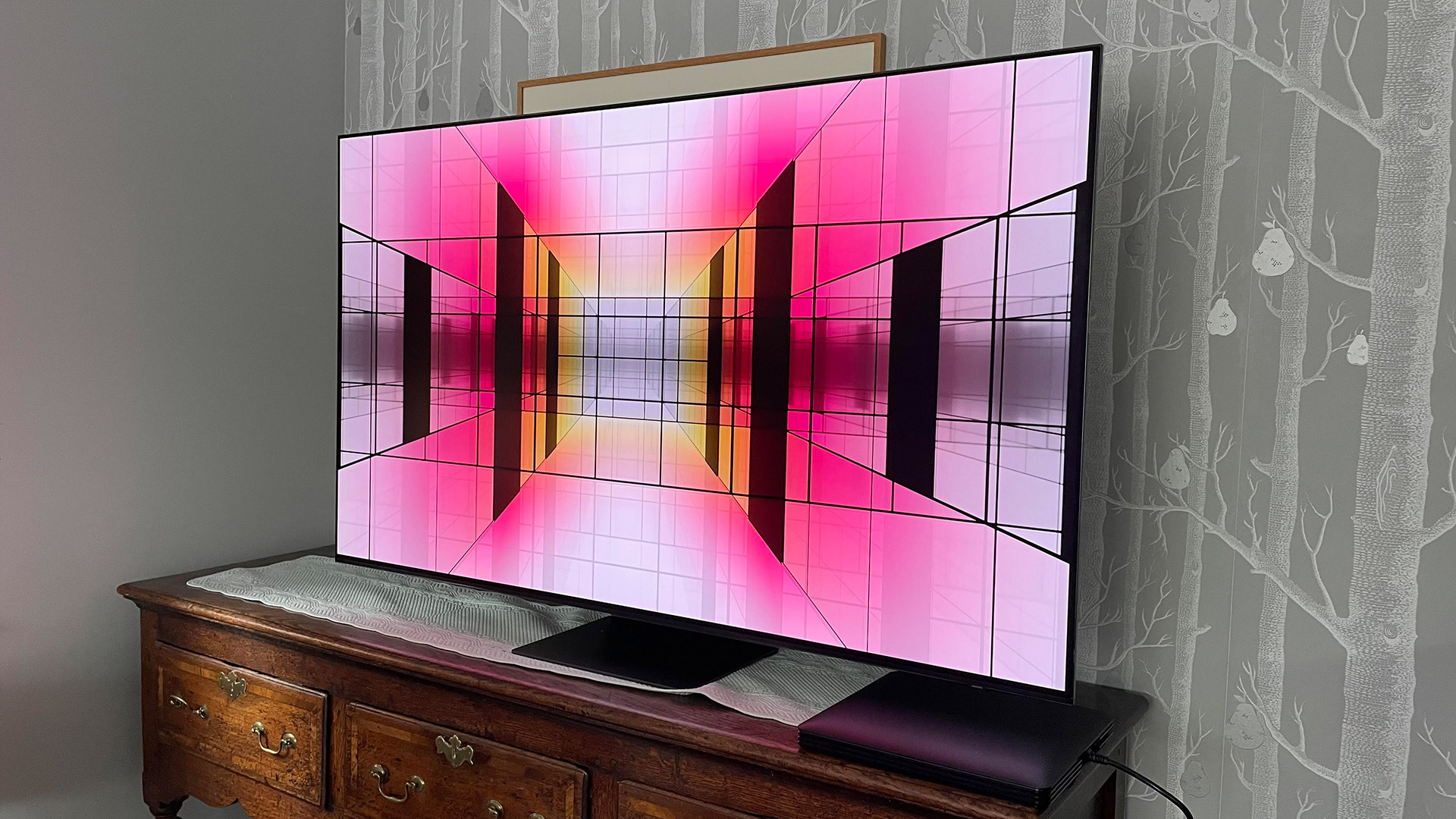
As 2024’s OLED TVs become available to buy, with releases from LG and Samsung leading the way, there are plenty of new updates, upgrades and even the odd issue or two that you need to keep your eye on.
OLED remains arguably the most popular type of TV tech on the market, as the best OLED TVs provide natural pictures with vibrant colors and rich, deep black levels that are easily the most accurate around. The best TVs of last year were dominated by OLED including the likes of the Samsung S90C, LG C3, Sony A80L and more, so 2024 has a lot to live up to.
Although we haven’t had a chance to fully test a lot of 2024’s OLEDs, from what we’ve seen at the likes of CES 2024 and other brand launch events, a lot of this year’s OLEDs look to be a step up from their predecessors. But, with all these new OLEDs releasing, it can be a bit daunting to keep track of what’s going on. Below we’ve listed five key things you need to know about 2024’s OLED TVs.
1. LG’s most popular OLED TV has gotten even brighter
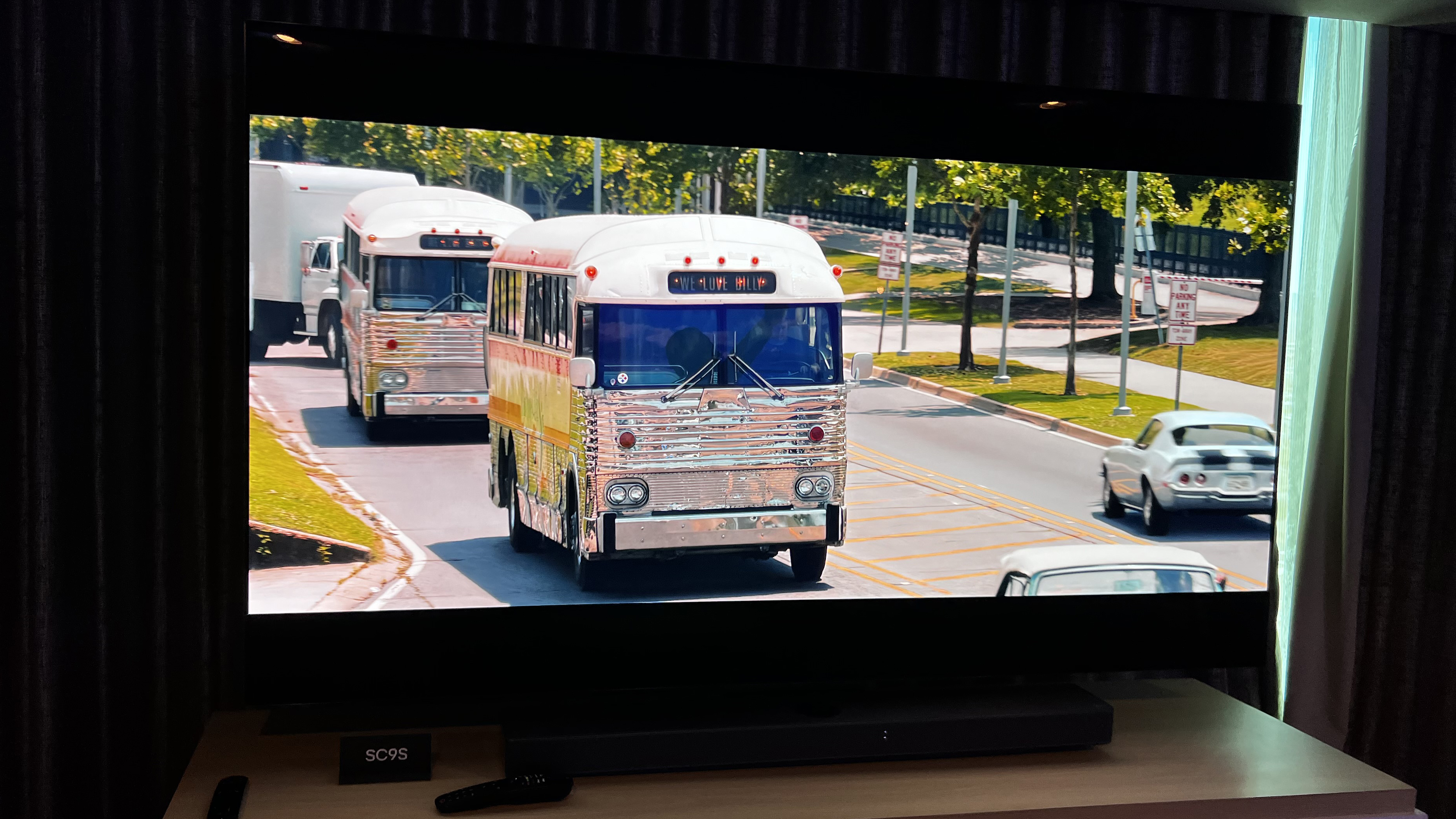
LG’s mid-range OLED, the C-series, is always its most popular OLED release every year. This is because it combines excellent OLED picture quality with a stack of features for gamers and movie lovers alike. One area it struggled with, until last year’s LG C3, was brightness. Dimmer than mini-LED and even some mid-range LEDs, it’s one of the trade-offs of buying an OLED. More and more OLEDs are improving brightness levels, but it is often limited to flagship models.
But, from what we’ve seen so far, the LG C4 – LG’s 2024 C-series entry – has brought brightness to the mid-range. The LG C3’s peak brightness was measured at 830 nits, which was respectable for a mid-range OLED but when we saw the LG C4 in-person, its brightness boost over the C3 was very apparent. HDR highlights looked more dynamic and when asked, LG didn’t dispute that the ballpark peak brightness for the C4 was in the 1,000 nits region.
While we don’t have any specific figures for peak brightness levels yet, we can’t wait to get our hands on the LG C4. From what we’ve seen so far, the C4 is a real contender for the top OLED TV of 2024.
2. Samsung’s successor to 2023’s best TV seems to be subject to a panel lottery
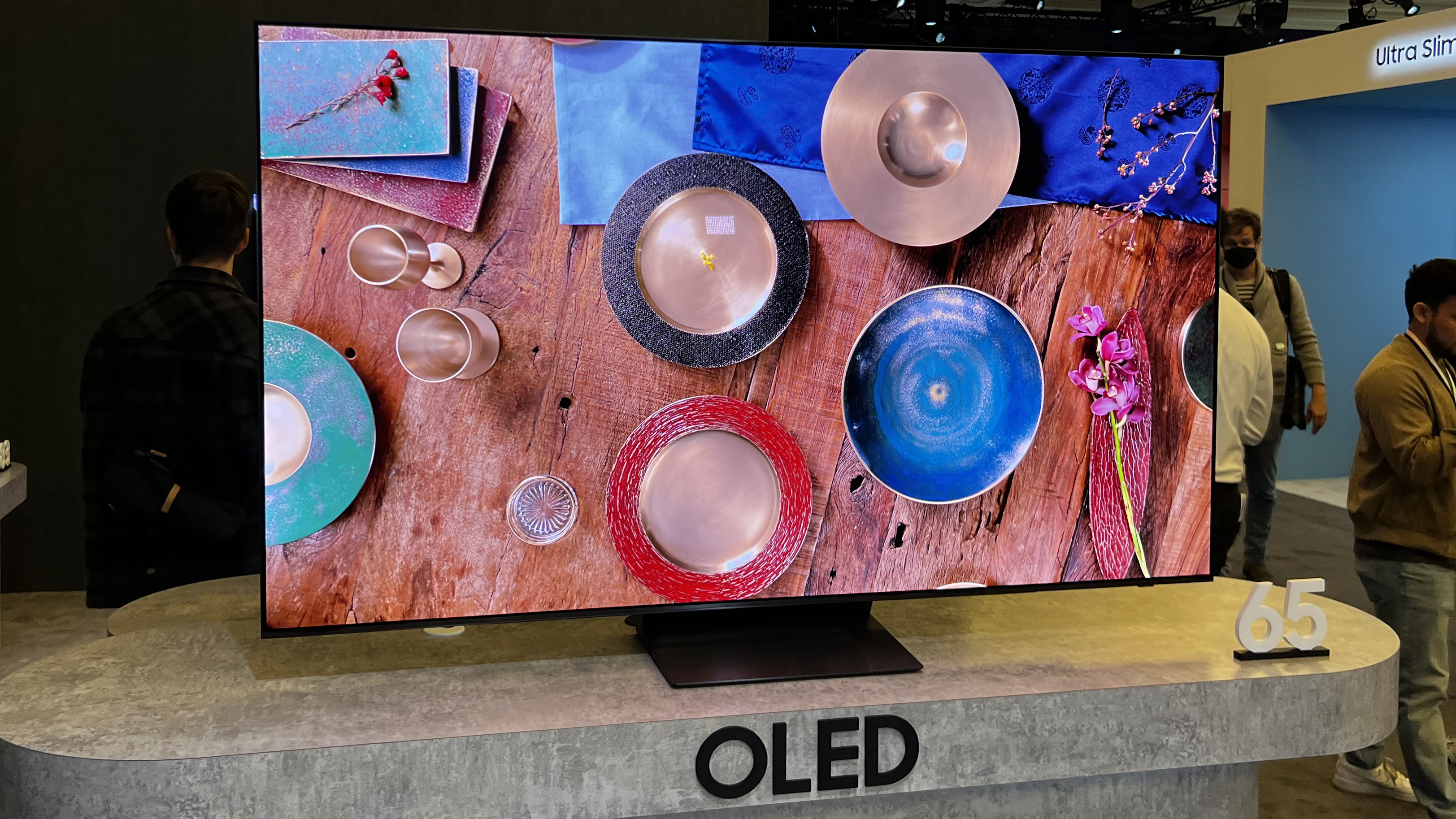
The Samsung S90C was picked at the TechRadar Choice Awards 2023 as our TV of the year because it took the best of QD-OLED technology – higher brightness levels combined with OLED-level contrast and black tones – but offered it at a more accessible price; one that was even competitive with conventional W-OLED TVs.
Get daily insight, inspiration and deals in your inbox
Sign up for breaking news, reviews, opinion, top tech deals, and more.
Naturally then, we had high expectations for the Samsung S90D. But when Samsung started unveiling new smaller models (42- and 48-inches to clearly rival LG’s C-series), we discovered that instead of QD-OLED panels, these smaller models would feature W-OLED panels found in other OLED TVs from the likes of LG, Sony, Panasonic and Philips. It was then reported that in its 55-, 65- and 77-inch models of the Samsung S90D, a mix of W-OLED and QD-OLED panels would be used with no way to tell which panel you would get, and its response to this panel lottery report wasn’t reassuring.
This panel lottery is unfortunate as although the Samsung S90D didn’t seem to carry many upgrades over the Samsung S90C on paper, other than a promised brightness boost, it definitely had the potential to be a top contender for best OLED TV even if it made no changes from its predecessor. But, this panel lottery does dampen the excitement.
3. LG’s budget OLED is even better for gamers
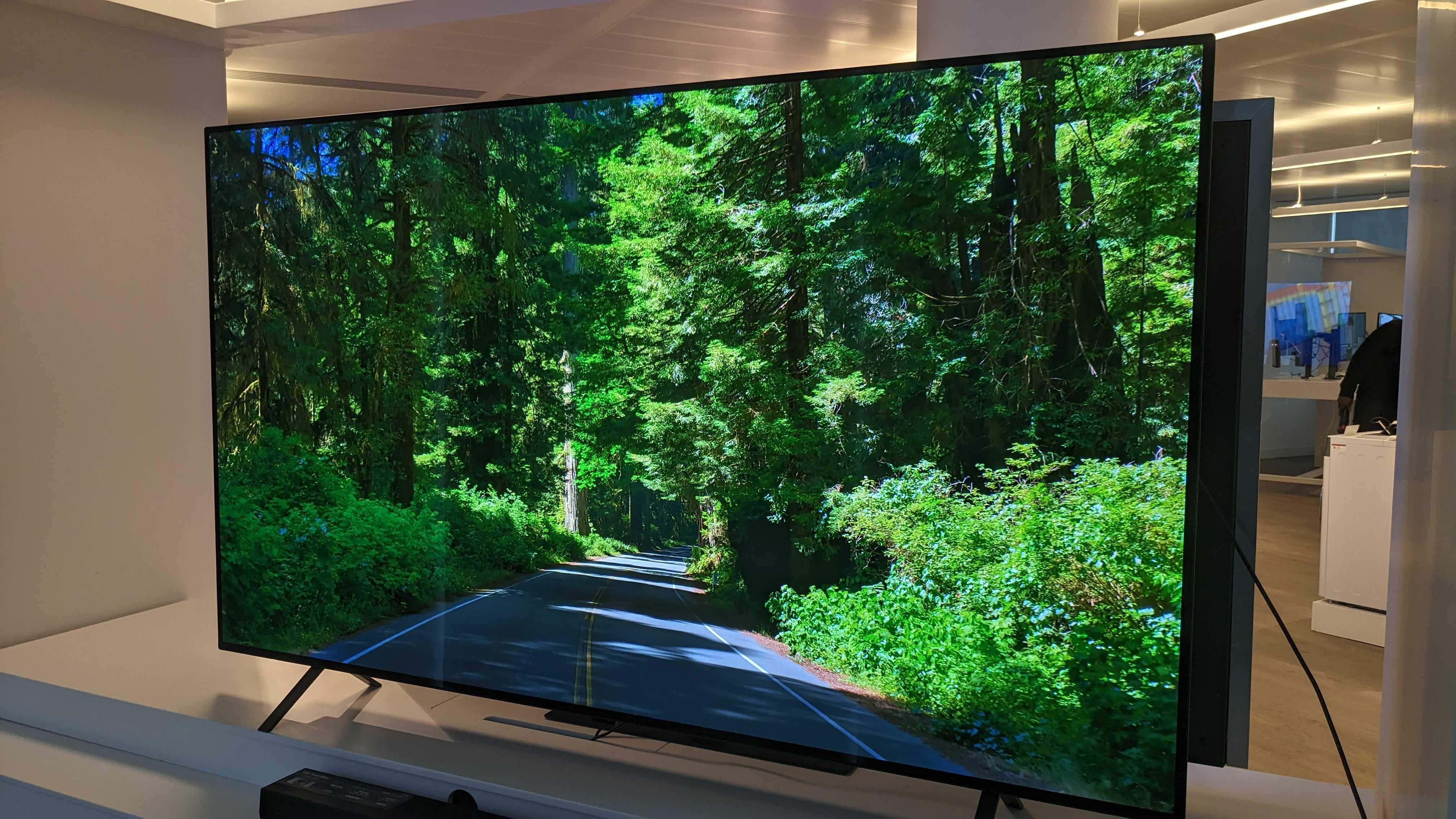
The LG B3 was the dark horse of the OLED TV market in 2023, offering OLED for a more budget-friendly price and still carrying a good stack of features. Unfortunately, it only came with two HDMI 2.1 ports for gaming, meaning gamers with multiple consoles would miss out. It also didn’t possess the same processing power or brightness of other OLED TVs.
However, this year, LG has rectified this, as the LG B4 will not only come equipped with four HDMI 2.1 ports, but will also be available in a 48-inch size for those gamers looking for an OLED that saves on both space and money. The LG B4 will also come equipped with the new Alpha 8 AI processor, which LG claims will match the performance of the LG C3, meaning we’ll hopefully see improved brightness and performance. It’s because of all this that I named the LG B4 as my most anticipated TV of 2024.
4. Samsung’s flagship OLED gets an anti-glare screen – a world first for OLEDs
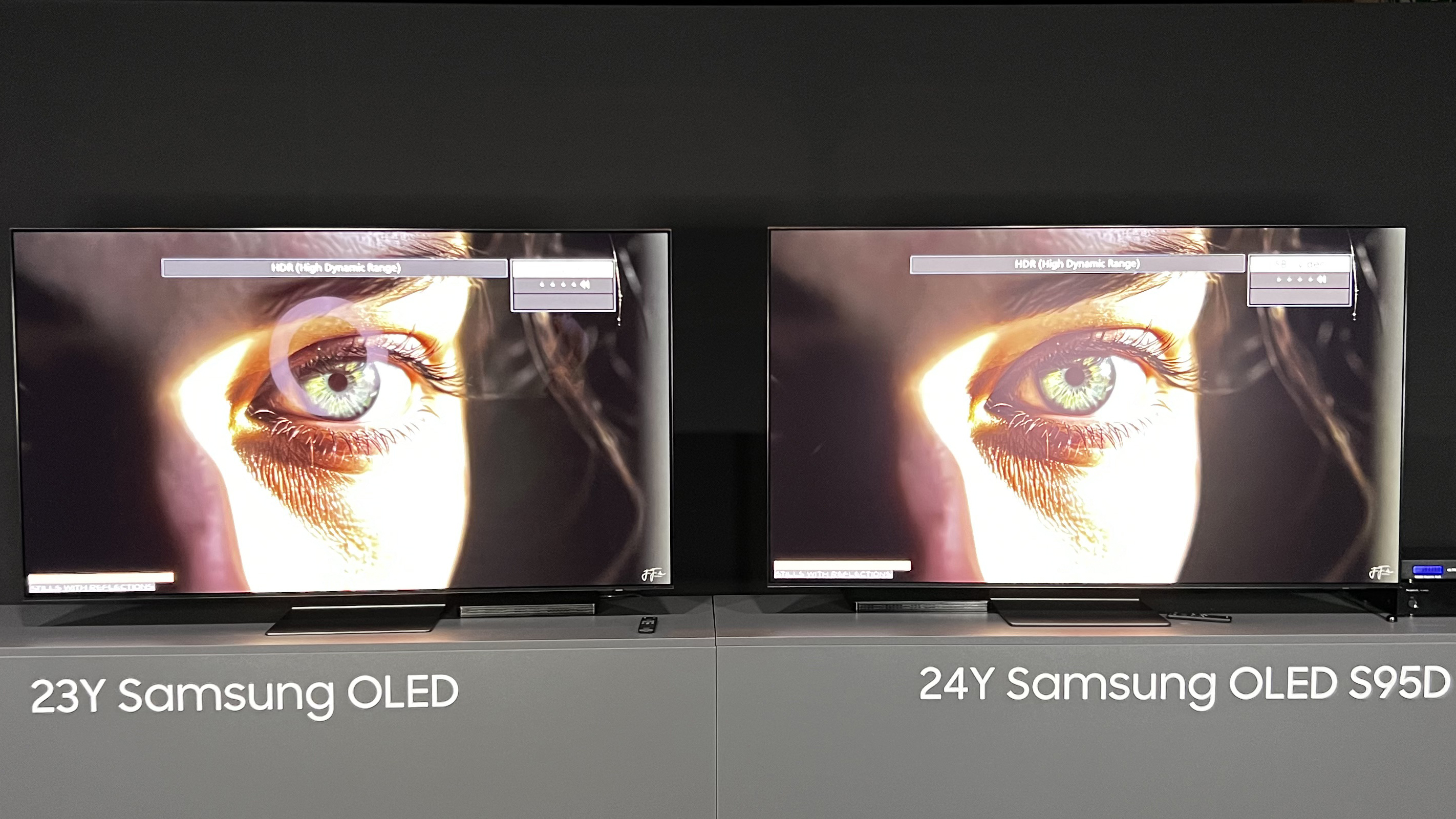
The S95C, Samsung’s flagship OLED of 2023, was the best premium OLED TV of last year and if it wasn’t for the Samsung S90C, would have likely been TV of the year, as it showcased the very best of QD-OLED. However, as is always an issue with OLED screens (and a lot of TVs in general) deeper black levels and lower full screen brightness than mini-LED and QLED means reflections, with only conventional methods available to combat them.
But, this year, Samsung announced that its flagship QD-OLED, the Samsung S95D, will use anti-glare technology (and utilize a matte screen like the one found on its Frame TVs) to limit screen reflections and from what we’ve seen so far, it’s very effective. In our hands-on test, the S95D was completely free of reflections with overhead lights turned on – even during a very dark scene from Dune. Samsung looks to have revolutionized OLED TVs once again with the S95D, so we can’t wait to get testing.
5. Sony’s future may be in mini-LED, not OLED
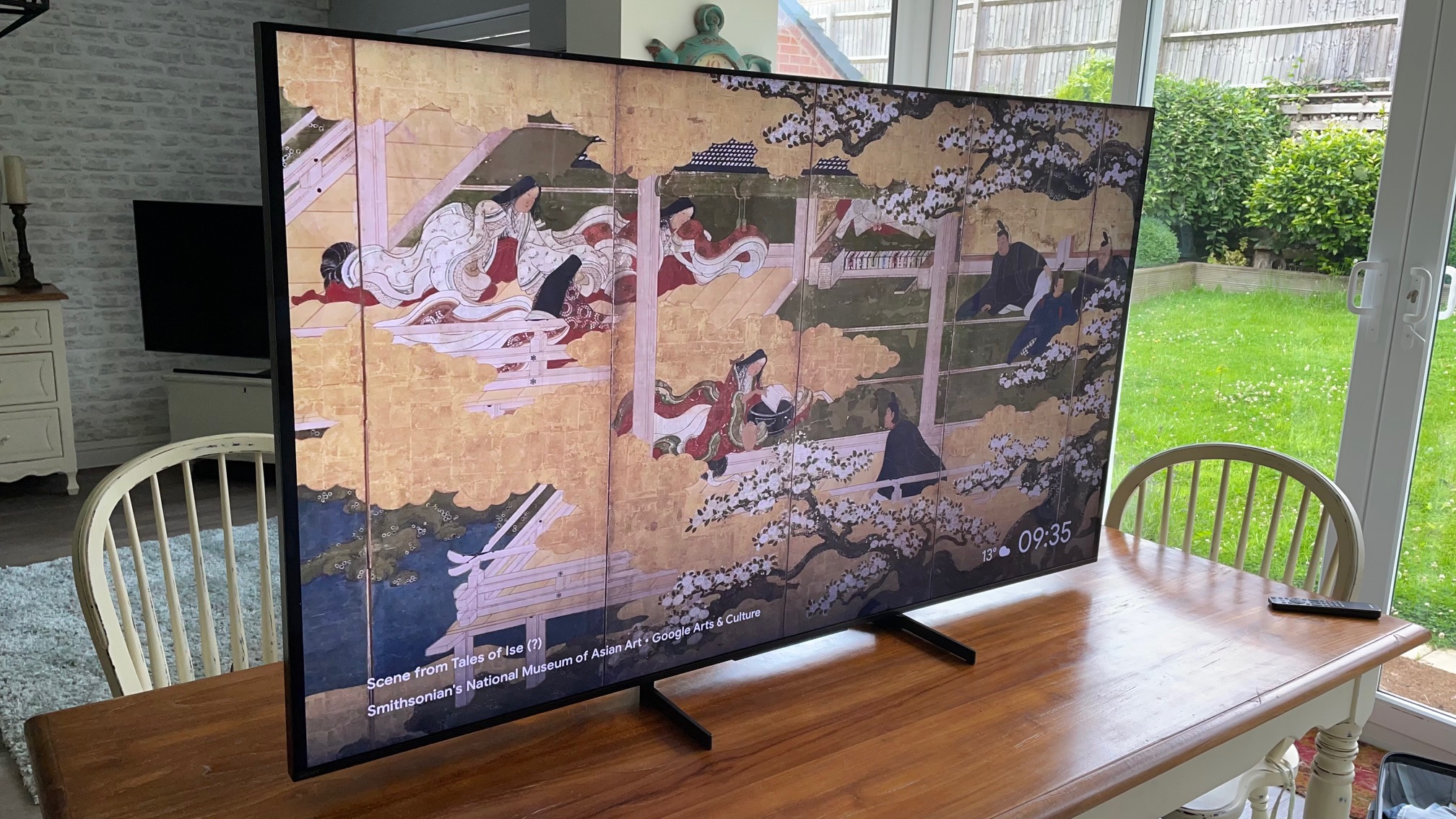
Sony’s 2023 OLED TVs, the Sony A80L and Sony A95L, which use OLED and QD-OLED panels, respectively, were both very successful thanks to Sony’s immersive built-in sound, sharp and detailed picture and PS5-specific gaming features. However, their more premium price tags meant they didn’t quite beat the likes of LG, Samsung and Philips.
But, with news earlier this year that Sony is working on a new type of mini-LED tech that focuses on better lighting control and makes it even more energy efficient, could we be seeing Sony move away from OLED? While we’re not sure when this new mini-LED tech will be available, Sony showcased it next to its Sony A80L OLED and Sony X95L mini-LED to show its benefits. We’ve yet to hear about Sony’s 2024 TV lineup just yet, but it will be interesting to see if Sony is moving away from OLED or is adding this new mini-LED tech into its lineup alongside all its other models.
You might also like...

James is the TV Hardware Staff Writer at TechRadar. Before joining the team, he worked at a major UK based AV retailer selling TV and audio equipment, where he was either telling customers the difference between OLED and QLED or being wowed by watching a PS5 run on the LG 65G2. When not writing about the latest TV tech, James can be found gaming, reading, watching rugby or coming up with another idea for a novel.